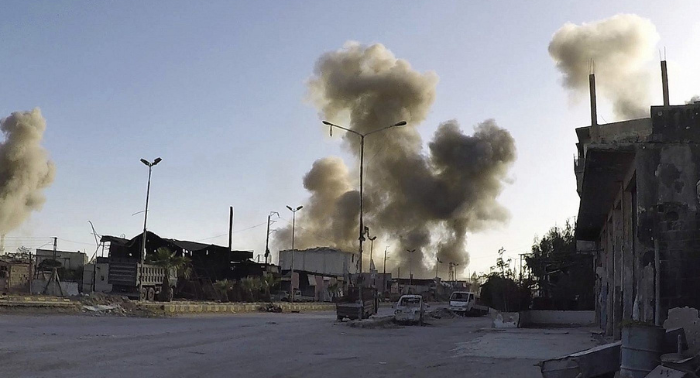In a bold move, the United States initiated airstrikes targeting weapons storage facilities in Syria. This action was taken in response to aggressive acts on American forces by Iran-supported militias. This development heightens concerns that the already heated Israel-Hamas dispute might escalate further across the Middle East.
Directing the retaliatory action, President Joe Biden greenlit the assault on locations associated with the Revolutionary Guard Corps of Iran and its affiliated militias. The Pentagon emphasized that the US stands ready to employ additional countermeasures if provocations by Iranian associates persist.
Over the preceding week, there have been a reported 19 aggressions against US and coalition forces in both Iraq and Syria, all stemming from Iran-supported entities. Key groups like Hamas, Islamic Jihad, and Hezbollah all receive backing from Tehran.
Speaking at the United Nations, Iran’s Foreign Minister, Hossein Amirabdollahian, conveyed a stern message. He remarked that if Israel’s operations against Hamas persist, the US could face significant repercussions.
Details emerged that US airstrikes, executed using F-16 jets, were carried out near Abu Kamal, a Syrian town near the Iraq border, at approximately 4:30 a.m. local time on Friday. Defense Secretary Lloyd Austin articulated the strikes as being defensive, following a spate of primarily thwarted aggressions initiated by Iranian-supported factions.
Austin stressed the impermissibility of such actions against US troops, vowing stringent reactions if needed. He noted, “The deception by Iran in these aggressions will not go unnoticed. Our personnel’s safety remains paramount.”
In a distinct move, President Biden dispatched a communication to Iran’s Supreme Leader Ayatollah Ali Khamenei, cautioning against any hostile actions toward US representatives in the region. An official underscored that these retaliatory measures were not coordinated with Israel.
Amidst escalating tensions, the US has enhanced its regional military presence, deploying additional troops and aircraft. Israel’s actions in Gaza have also raised concerns, with significant bombardments following a severe Hamas-led attack. These have resulted in substantial casualties and a grave humanitarian crisis.
Recent reports also highlight an unexpected missile strike in an Egyptian town from the ongoing conflict, further showcasing the region’s volatility.
On the Israeli front, there were claims of significant strikes against key Hamas figures in response to the earlier attacks. Yet, as Palestinian conditions worsen, global entities like the U.N. are increasingly pushing for a ceasefire and humanitarian aid.
Public sentiment in Israel shows a dip in support for a broader ground invasion. A recent poll suggests that many Israelis prefer a more measured approach, contrasting with prior sentiments. The hostage situation in Gaza, with some being released and others perishing in strikes, is believed to have influenced this shift in public opinion.
t




